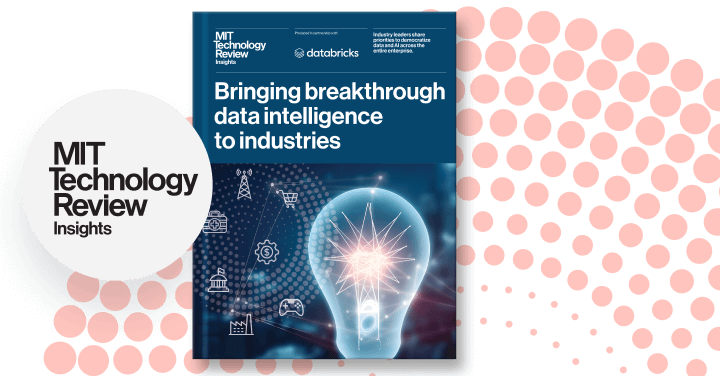Summary of DAIS 2025 Announcements Through the Lens of Games

Summary
- Gaming focus: Recap of DAIS 2025 sessions tailored to game developers, with real-world examples across LiveOps, personalization, and player analytics.
- Key launches: Highlights include Lakebase for real-time insights, AI/BI Genie + Deep Research for smarter analytics, and Agent Bricks for GenAI-powered workflows.
- Developer impact: New tools like Databricks Apps, Lakeflow Designer, and Unity Catalog make it easier for teams of all sizes to build, govern, and scale game data systems.
Introduction
I hope you all were able to make it to the Data and AI Summit this year. For those of you who missed out, the available recordings should be posted in a few weeks. In the meantime, I want to share a few announcements from the show that I am most excited about and how they apply to games.
Lakebase
Our customers tell us: insight without action is wasted effort. Lakebase is an important step in the evolution of the Lakehouse as it seeks to power more action for game developers. Prior to Lakebase, all Lakehouse workloads were OLAP in nature. The latency and cost proposition didn’t work well for transactional systems and lookups. This led to more static information, calculations, and KPIs being used for transactional systems, or duplicate efforts.
Lakebase enables game developers to easily serve Lakehouse derived insight to their applications. Lakebase is a fully managed Postgres database, integrated into your Lakehouse, that will automatically sync your Delta tables without you having to write custom ETL, config IAM or Networking. Learn more here (updated once available).
Example Use Cases
- Realtime Personalization: Serve up segments, offers and recommendations determined as a result of Lakehouse pipelines and/or machine learning models.
- Churn Mitigation: Maintain lists of users who have been determined to be at risk to churn as a result of ML models, statistical propensity and signals across your entire Lakehouse.
- External User Statistics: Power external websites that provide aggregated information about your player’s experience with the game. Total kills across the game, current CCU, complex analytical leaderboards.
AI/BI Genie GA + Deep Research
AI/BI Genie, the foundation of our conversational analytics capabilities, is now generally available. This is one of the most exciting new capabilities for the Lakehouse. This tool enables you to have a conversation with your data and dive deeper into the insight you’re being shown. Think ChatGPT but instead of using publicly available data, it can answer questions about your business data. With AI/BI Genie we’ve made a huge step towards making self service analytics a reality.
At DAIS we also announced the next evolution of the solution: Deep Research. AI/BI Genie Spaces are great at helping you answer “what happened?” Deep Research helps you answer “why did it happen?” Imagine seeing your CCU count drop in the last 3 days as compared to the last three months. What caused the drop? What factors contributed to that change? What trends can we spot? That’s what deep research provides you. Learn More Here.
Example Use Cases
- Revenue/Marketing: Digging into the why behind a KPI or outcome
- Game Development: How are players engaging with the title
- LiveOps: Quickly understand what’s happening and analyzing changing situations
Databricks Apps
Databricks Apps enables business users to engage with insight and quickly take action. So much of analytics is focused on telling the news, informing us of what has happened. Where Lakebase enabled action by empowering external applications to take advantage of Lakehouse insight and AI/BI Genie helped end users to engage with and understand more deeply the insight coming out of the Lakehouse; Databricks Apps empowers the creation of data focused applications.
Databricks Apps bring value to game developers of all sizes. Small teams will benefit from them as it will enable quick creation and deployment of interactive data applications and RAG style chatbots. Large organizations will be able to create flexible, sharable, ML interfaces empowering business users to benefit from more ML models. All organizations will rest easier knowing that the data is governed by the same permissions that are keeping their data secure as a whole. Learn More Here.
Example Use Cases
- A/B Testing: You’re a LiveOps manager; you're working on a personalization project. Conversational analytics helped you figure out the different groups you want to receive specific offers. Now, using your Databricks App you can analyze and write back the new segment values into your Lakehouse (and serve them via Lakebase to your platform services).
- RAG Knowledge Bots: Create simple, easy-to-use, interfaces for RAG Chatbot applications like: One that brings in all your confluence docs for the development team or that exposes current lore to narrative and game designers.
- Persona Focused Data Applications: Enable your data developers, who best understand your Lakehouse, to quickly build applications for business users. For example, a Player Feedback Analysis tool that ingests data from Steam, X, Reddit, etc. extracts insight from the unstructured data, scores sentiment and enables the community manager to escalate reported issues.
Data intelligence reshapes industries
Agent Bricks
Nearly everyone we speak with in games is working on at least one Agentic AI system. These projects are frequently too difficult to implement or too generic to provide value. Agent Bricks helps build production ready AI agents rooted in your datasets. They enable small, and large, teams to build GenAI applications with governance and scalability.
For small game developers it levels the playing field for GenAI / Agentic AI systems enabling you to build agents that are optimized for cost or quality and pick the right models for your use case. It also helps with the creation of synthetic, labeled, data rooted in your domain (Games). You specify the task you want to accomplish and Agent Bricks will create, optimize and continuously improve the agent for you.
For large game developers, Agent Bricks will act as a force multiplier. Build agents more quickly, better manage fleets of agents and provide bespoke agents to meet all the unique needs of your business users. It will help eliminate the need to create generic agents and enable you to build ones that are best suited to individual groups without overburdening your data teams.
Example Use Cases
- User Research, Chat and Feedback: Use information extraction agents to turn unstructured text into structured fields without the need for labeled data.
- Lore, IP and Style Chatbots: Deliver fast, accurate, answers rooted in the docs you’ve written to describe the lore, style choices or IP requirements for your game with Knowledge Assistant Agents.
- Complex Agent Workflows: With a Multi-Agent Supervisor you can create higher quality systems with less manual effort.
Lakeflow (Designer)
Regardless of the size of the developer, studio or publisher, there’s never enough data engineering resources to go around. Data engineers are often either overburdened by AdHoc requests or ongoing maintenance of existing systems. Our Lakeflow capabilities seek to simplify data engineering efforts enabling more time to be spent on new projects and insight. The new Lakeflow combines ingestion, declarative SQL pipelines and Spark workflows into a single interface to further improve data engineering productivity.
As a part of this we’ve also released Lakeflow Designer. These low-code capabilities empower data experts to build pipelines that meet their specific business requirements.
Example Use Cases
- Early Development Analytics: For smaller game companies, or studios early on in development of a new game, this could allow game designers to begin to ingest data sources and produce initial KPIs earlier in development, perhaps before hiring the first Data Engineering leader.
- Line of Business Specific Tables: For larger game companies this might be used by a line of business, like Marketing, that wants to create a series of gold, or platinum, tables as their approach to user acquisition continues to evolve. Since this is all managed by UC it makes it easier to manage over time than another third party low-code tool.
Unity Catalog Update
“If you're gonna go with Iceberg, you better do it with Databricks Unity Catalog” - Ali Ghodsi
Unity Catalog supports reads and writes to managed tables from both Databricks and external engines. You get automated table optimization of Iceberg tables. External engines can read and write to Iceberg tables through UC’s Iceberg REST interface. One Data Catalog can address all of your needs.
Example Use Cases
- Data Sharing and Interoperability: Publishers and Studios can securely share data (e.g., for cross-publisher fraud prevention, joint marketing, or community safety) without duplicating or exporting data across a variety of table formats.
- Cloud & Compute Engine Agnostic: Developers can use any analytics or ML engine—internal or external—to read and write to the same tables governed by a single catalog.
- High Performance Use Cases: UC Automatically tunes Iceberg tables for performance enabling game companies to handle spikey data volumes during launches, events or viral moments.
- Lower Ongoing Maintenance: Ensure all use cases, from player metrics to fraud detection to operational dashboards remain performant—without manual tuning.
Why This Matters—and What You Should Do Next
The research is clear: the Games industry is at a tipping point, with measurable results in growth, risk management, and efficiency for those who act. The window for competitive differentiation is narrowing—firms that orchestrate AI across the business are already outperforming the market, while those that hesitate risk falling behind.
If you’re ready to see what’s possible, connect with your Databricks account executive. Let’s explore how you can leverage new capabilities like Lakebase, Agent Apps, and Unity Catalog Metrics to hit your goals. Book a quick 15-minute strategy call to discuss the latest announcements, see a short demo of Data Intelligence in action, and plan a workshop tailored to your needs.
The future of games is here. Let’s build it—together.


